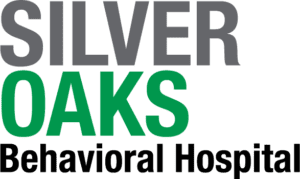An Informative Overview of the Adult Program at Silver Oaks Behavioral Hospital
The Adult Mental Health Program at Silver Oaks Behavioral Hospital (SOBH) offers a level of care for adults in need of behavioral health care. Our goal today is to outline the treatment course and establish patient expectations at our facility.
Our inpatient program encourages the communication of open and honest feelings and responsible behavior. While under our care, our primary goal is to create an open and trusting atmosphere in which patients can share their thoughts and feelings in a supportive and caring environment. At Silver Oaks Behavioral Hospital, we believe that respect for the patient is an important aspect of our therapeutic environment and assists in the healing process.
Patients are admitted to the adult services for acute inpatient hospitalization. The goal of the program is to provide a high level of mental health care for patients in order to reach a higher level of functioning and meet their treatment goals, which are established before treatment begins. Our hospital offers a safe and secure environment staffed with caring and highly trained professionals, providing an atmosphere that promotes stabilization and healing.
Our services and mental health programs are tailored to the patient’s needs, enabling them to more effectively cope with emotions and maladaptive behaviors. Treatment emphasizes client-centered therapy emphasizing return-to-work, return-to-life strategies, and cognitive/behavioral therapies to help patients transition from the hospital smoothly and in the shortest possible time. Our personalized treatment and aftercare plans address a broad range of needs, with individualized consideration for each patient. Comprehensive assessment and recommended treatment may include individual and group therapy, as well as family education.
Our hospital is designed to be a peaceful & healing setting for intensive mental health treatment including observation, diagnosis, individual and group psychotherapy and medication management. It is a safe place to be if you are feeling out of control, having thoughts of harming yourself or someone else, having trouble taking care of yourself or your family or if you are experiencing other serious symptoms of mental illness. Psychiatric hospitalization may treat a variety of mental illnesses, including depression, bipolar disorder, schizophrenia, and extreme anxiety.
Because inpatient care interrupts daily life, hospitalization should be reserved for situations when round-the-clock safety, observation, and care are required. Our hospital stays are only long enough to resolve the most urgent issues, from a few days to a few weeks. Alternatives can relieve the need for full hospital care or serve as part of the discharge process and, we offer intensive outpatient as an option for long term services and supports.
Our dedicated and caring team works to assess and rapidly stabilize adults who are experiencing severe psychological symptoms. The goal of treatment is to reduce and manage the patient’s symptoms and to help the patient learn about his/her illness and treatment.
Patients may enter our inpatient program due to:
- Mood Disorders (Depression, Bipolar Disorder)
- Anxiety Disorders (Generalized Anxiety, Panic Disorder, Agoraphobia)
- Post-Traumatic Stress Disorder
- Poor impulse control
- Suicidal thoughts or attempt(s)
- Self-harm behaviors
- Threatened, attempted or engaged in physical violence to others
- Substance abuse
- Delusions, hallucinations, schizophrenia
- Stabilization on medication / medication adjustments
We work with each patient as an individual, addressing each of his or her unique needs through a multidisciplinary treatment approach. Our multidisciplinary treatment team includes physicians, psychiatrists, social workers, family counselors, nurses, adjunctive therapists, and dieticians.
Silver Oaks recognizes the need for a holistic approach to treatment, which offers multiple avenues of engaging patients in the treatment process. Patients will gain skills in the areas of developing healthy boundaries, learning how to appropriately express emotions using effective communication skills, increasing self-esteem, managing anger, and developing life skills.
Our Inpatient Care Includes:
- Chemical dependency evaluation and treatment as needed
- Integrated psychiatric assessment, diagnosis, and evaluation
- Individualized treatment planning
- Rapid stabilization and effective transition to home and community
- Evidence supported treatments including cognitive behavior treatment
- Individual group and psychotherapy
- Family therapy as clinically indicated
- Medication management and education
- Patient psychoeducation groups to improve understanding of the illness
- Stress management and coping skills
- Life skills
- Spirituality groups
- Expressive and recreational therapies
o Art Therapy
o Music Therapy
o Movement Therapy (yoga, tai chi, meditation)
- Aftercare and discharge planning
- Multidisciplinary team approach
- Relapse prevention plan
Identities and Expressions Track
Silver Oaks recognizes the diversity of LGBTQ+ families. Our Identities and Expressions track provides guidance in developing coping skills, life balance and other tools needed for support and healthy living.
Whether biological, family of choice or a combination, patients are encouraged each week to invite family and friends to a support group prior to visiting hours. Each patient invites their defined family to attend this structured education, large-group therapy session. This group is available for supportive family members of our patients and is a great opportunity for family members to begin to see how their lives will change when their loved one is in recovery.
Identities and Expressions Therapy topics include:
- Health education
- LGBTQ+ issues
- HIV and chronic illness
- Trauma
- Grief and loss
- Body image group
- Transgender support group
- Relapse prevention
- Cognitive skills education
- Anger management
- Relational and sexual health
- Family Support Group
It is our goal to provide patients with new healthy skills that they will use for life as we help them down their road to recovery and to provide every patient with a thorough assessment followed by an intensive, focused individualized recommendation for intervention. Inpatient treatment is short-term, so every patient will leave the hospital with a discharge plan designed to help maintain the progress they made during treatment.
Treatment Model
Silver Oaks Behavioral Hospital uses Evidence-Based Treatment (EBT) throughout the treatment program. The program uses a variety of treatment modalities to assist patients in achieving their treatment goals. The program uses Illness Management and Recovery (IMR) Model of treatment, Cognitive Behavioral Therapy (CBT), and Dialectical Behavior Therapy (DBT)
Illness Management and Recovery (IMR)
Illness Management and Recovery is an evidence-based psychiatric rehabilitation practice that is designed to empower patients to manage their illnesses, find their own goals for recovery, and make informed decisions about their treatment by teaching the necessary skills and knowledge for success. This model of care teaches patients more about mental illnesses, reduces relapses and hospitalizations, reduces distress from symptoms, and teaches patients how to use medications more consistently.
Cognitive Behavior Therapy (CBT)
Cognitive Behavior Therapy (CBT) is a short-term, present-oriented, evidence-based therapy used to treat a wide variety of psychiatric disorders and psychological problems including mood disorders and anxiety disorders. CBT is individually tailored to each individual to build a strong therapeutic alliance and emphasizes collaboration and active participation from the treatment team and the patient. CBT is also a time-limited approach to therapy designed to focus on the present time and teaches the patient to eventually be his or her own therapist. One of the core values of CBT is to teach patients how to identify, evaluate, and respond to their dysfunctional thoughts and beliefs in order to change the individual’s thoughts, mood, and behaviors to be more functional and healthy.
Dialectical Behavior Therapy (DBT)
The program also teaches skills rooted in Dialectical Behavior Therapy (DBT) including mindfulness, interpersonal effectiveness, emotion regulation, and distress tolerance. Each of these skills has specific coping strategies that are taught to patients during group sessions and is then practiced in the milieu to promote the transfer of skills to the patient’s everyday life. Homework and practice are essential to CBT and DBT and are assigned to patients by the program therapist.
Unified Protocol
The Unified Protocol (UP) is a type of therapy for people with emotional disorders. The term emotional disorder is used here to mean a mental disorder in which the main problem is handling tough emotions like depression and anxiety. It applies to many common problems: social anxiety, worry and generalized anxiety, obsessive thoughts and behaviors like those seen in OCD, depression, trauma or PTSD – the list goes on. These disorders all have something in common-they make it hard to manage uncomfortable emotions in a way that’s useful, which can cause these emotions to get worse.
The Unified Protocol is unique compared to most other treatments because it can address many different problems related to emotion, rather than focusing on just one thing. The goal of the UP is to help patients learn better ways of responding to uncomfortable emotions. The UP consists of different “modules” or sections of treatment, and each module focuses on an important skill necessary for developing healthier habits related to emotional experiences.
Structure of the Adult Program
The patient’s attending psychiatrist and a team of psychiatric professionals direct the Adult Program. The key components of the program include:
(1) Group Therapy – Group therapy is held each day with a focus on skill development and cognitive-behavioral interventions to improve their interpersonal, social, and occupational functioning. Every patient meets with his or her therapist in groups that address treatment issues in a supportive environment. Issues such as low self-esteem, stress management, relaxation, anger management, anxiety, depression, and mania are included in the focus of this group therapy.
(2) Psychoeducational/Skills Group – Psychoeducational/Skills Groups are held daily to provide patients with education on mental illness and to improve coping strategies to decrease symptoms.
(3) Individual Therapy – The therapist provides individual therapy on an as-needed basis.
(4) Family Therapy – Family members may be requested to participate in family therapy with consent from the patient and at the discretion of the treatment team.
Admission and Discharge Process
Admission Process to the Program
All applicants to the Adult Mental Health Unit will be assessed prior to admission into the program. Each applicant is screened to determine the type of mental health services that are needed, and documentation will be placed in the patient record to justify the placement/referral decision.
Patients admitted to the Adult Unit meet criteria that may include impairment to the degree that there are mild manifestations of disability in interpersonal and/or occupational functioning, failure of aftercare or other support groups, or minimal deterioration of the usual level of functioning.
Continued Stay Criteria
Once admitted a patient will meet continued stay criteria if the patient has not yet met the goals of the individualized treatment plan, but he or she is expected to meet them or if the patient has been unable to sustain treatment gains without the structure of this level of care.
Discharge
Discharge planning begins upon admission to the unit. The discharge planning process is an integral part of the treatment process and is documented throughout the process. The criteria for discharge will vary from patient to patient according to each patient’s specific circumstances and needs. In order for a patient to be discharged from the Adult Unit the following criteria must be met:
-The goals of the treatment will have been substantially met at this level of care (unless transfer to another treatment facility is indicated) and a discharge plan is in place that meets any continuing needs.
-Follow-up goals and treatment plans for a lesser level of care have been established.
-Releasing or transferring the patient to a lesser level of care does not pose a threat to him/herself, or others, or property.
Boundaries
Patients participating in the program are expected to abstain from social relationships with peers outside of the program after they are discharged. Please do not share any personal information (address, phone number, social media information, etc.) with other patients.
The Treatment Plan
Every patient is unique, and the treatment plan designed for the patient reflects that uniqueness. An individualized treatment plan is developed utilizing the identified problems from the completed assessments. The patient’s strengths and limitations are also taken into consideration in the development of the treatment plan. The treatment plan addresses specific goals and objectives and defines the appropriate interventions to be utilized. The plan guides the care and treatment of the patient and documents ongoing efforts to restore the patient to a higher level of functioning that would permit discharge from the program or reflect the continued need for the intensity of active treatment to maintain the patient’s condition and functional level and to prevent relapse or re-hospitalization.
Program Rules and Guidelines
SOBH aims to provide a safe therapeutic environment for all patients in the Adult Unit.
Patient Rights
SOBH will support and protect the fundamental human, civil, constitutional, and statutory rights of each patient. The means by which these rights are protected are outlined in a handout that is given to each patient upon admission.
Telephone and Camera Use
Cameras are not to be used.
Telephone times are posted. Telephones are not to be used during group time.
Visitation
Visitation times are always available online for review.
Smoking Policy
This is a smoke-free campus and smoking is not permitted in the hospital or on campus.
Food and Beverages
Snacks and beverages are provided daily for patients in the community room. Meals are served during the scheduled time.
General Rules and Expectations
Patients are expected to talk to a staff person about the issues which led to the admission. In order to provide a safe and therapeutic milieu, there is no physical contact between patients. Clothing with sexual or violent themes or alcohol, drugs, or cigarette advertisement is prohibited.In order to ensure the safety of all patients at SOBH it is necessary to control the availability of items that can be potentially dangerous. These items are considered contraband and include, but are not limited to, the following:
- Tobacco products, lighters, matches, alcoholic beverages, prescription medication, or other drugs are prohibited at SOBH. For safety, sanitation, and dietary management purposes patients are asked to not bring food items to the program.
- Glass containers, aluminum cans, nail clippers, metal nail files, scissors
- Weapons of any kind (guns, knives, mace, pepper spray, etc.) are strictly prohibited.
- Other possible items to be determined by the program staff
Cultural Competency
The SOBH Adult Program delivers services in a culturally competent manner to ensure services are more effective and relevant to each individual. The treatment and care for each patient take into account their cultural history and background.
Confidentiality
Privacy and confidentiality of all patients and their families are respected and protected at SOBH. Personal information is available only to the staff directly responsible for the patient’s care in order to provide treatment. Efforts are strictly enforced to keep confidentiality and to maintain privacy within the treatment setting.
For privacy and the privacy of others, the names of patients should never be shared outside of the program. Please do not discuss information about other patients. Do not share information: address, email, phone number, etc. with other patients. For confidentiality and protection, this is strictly prohibited.



